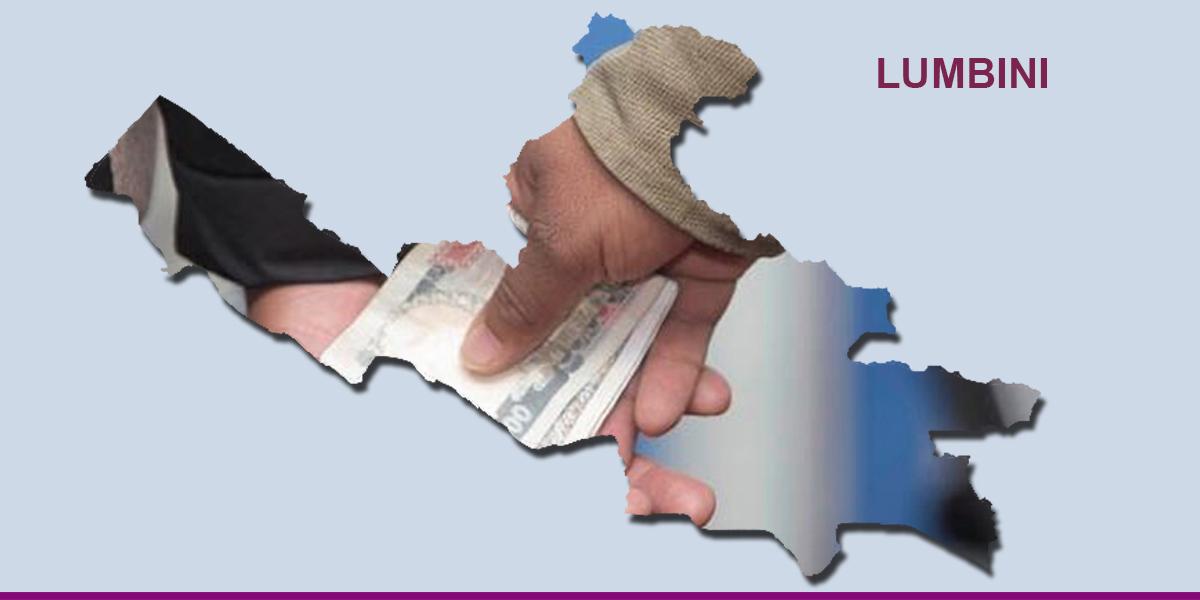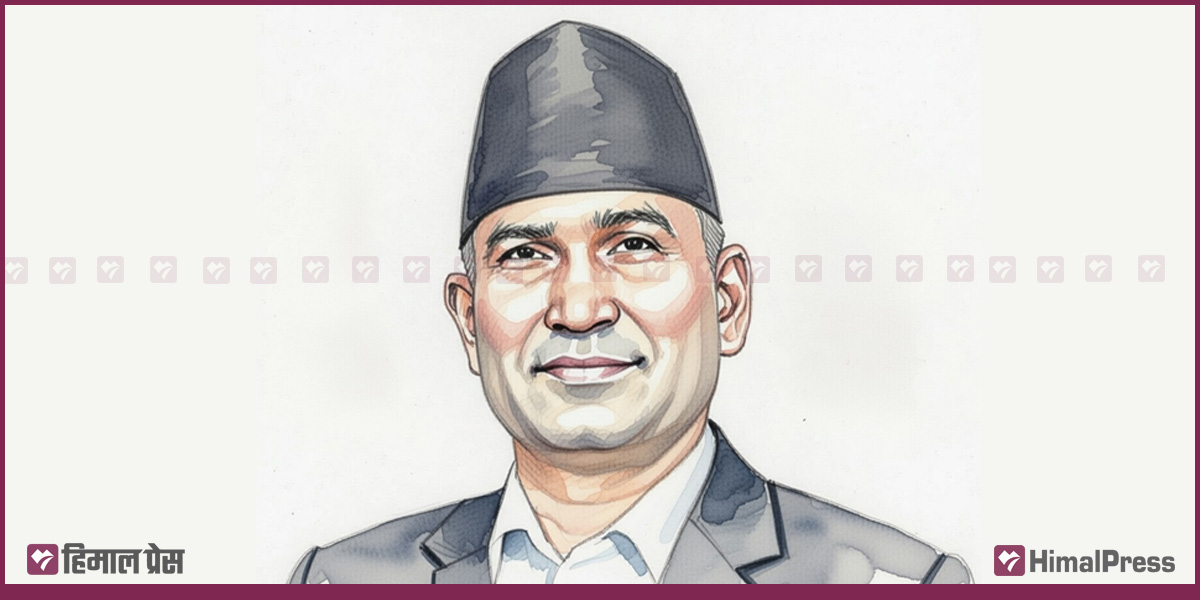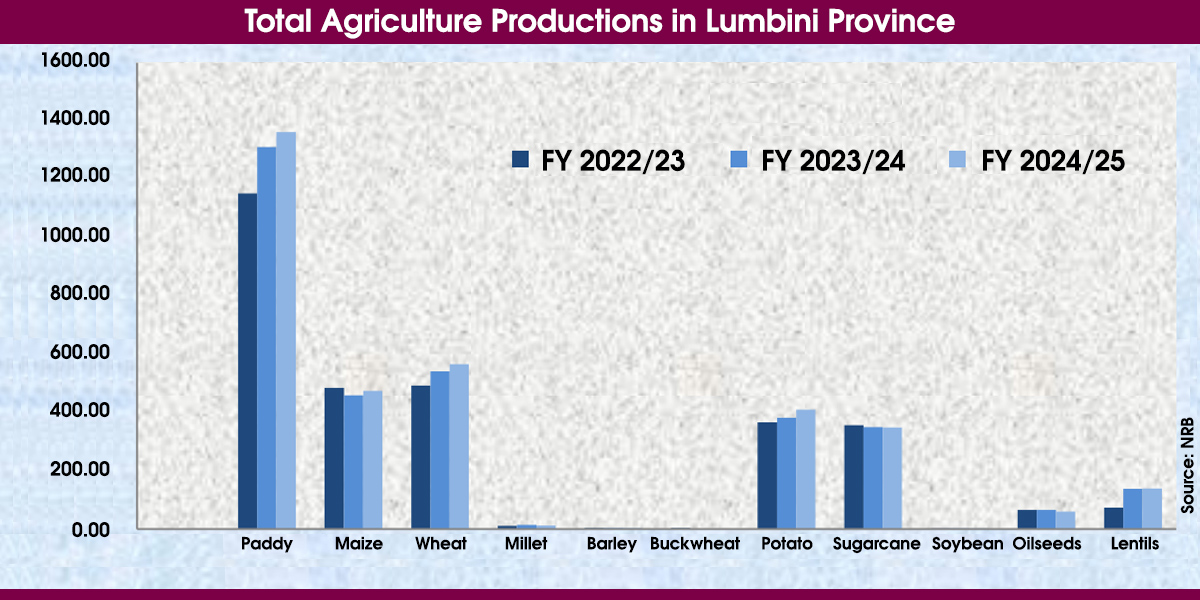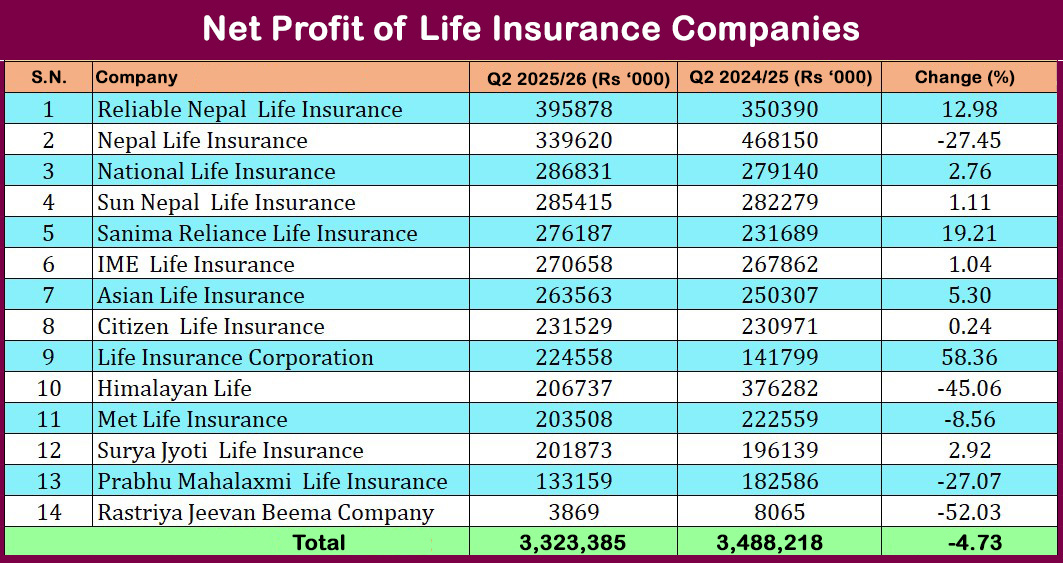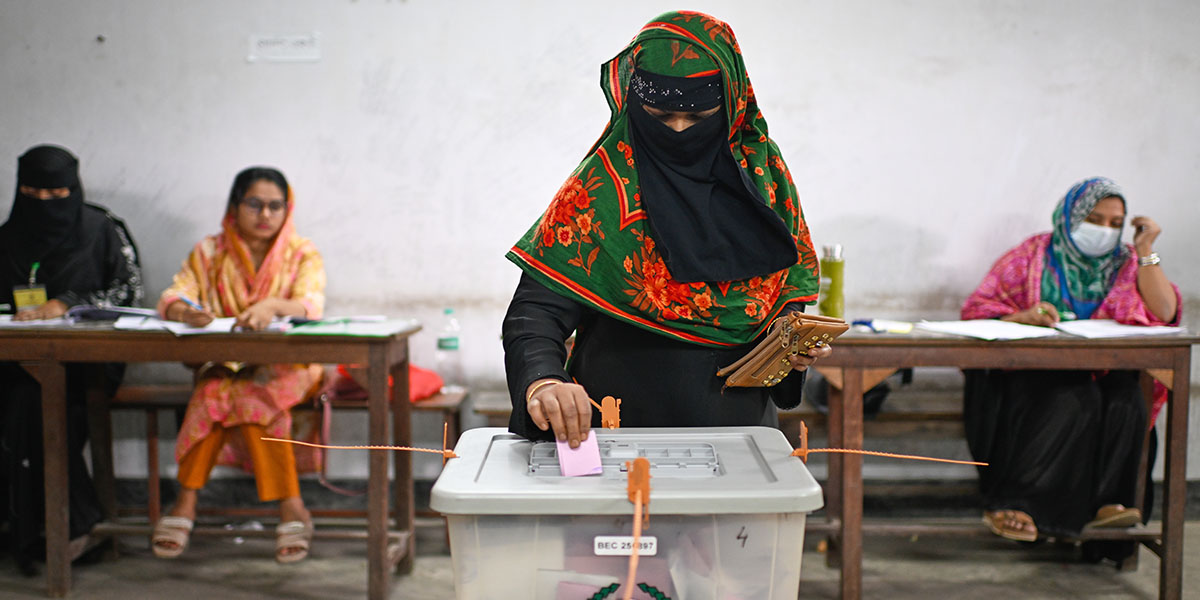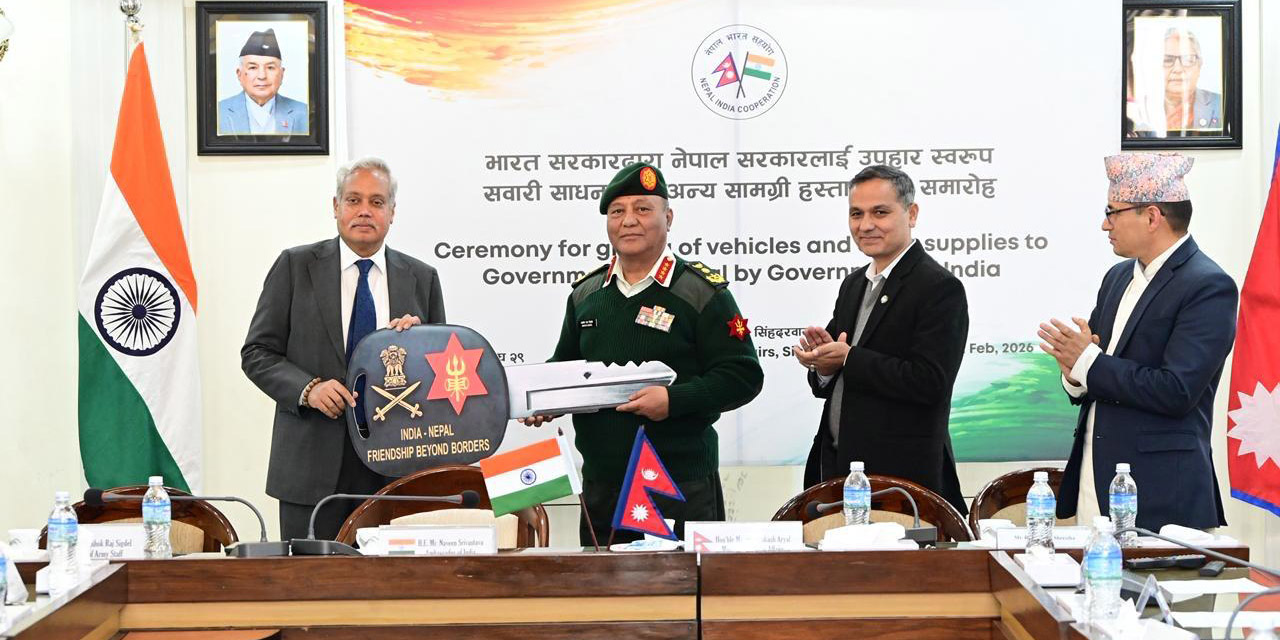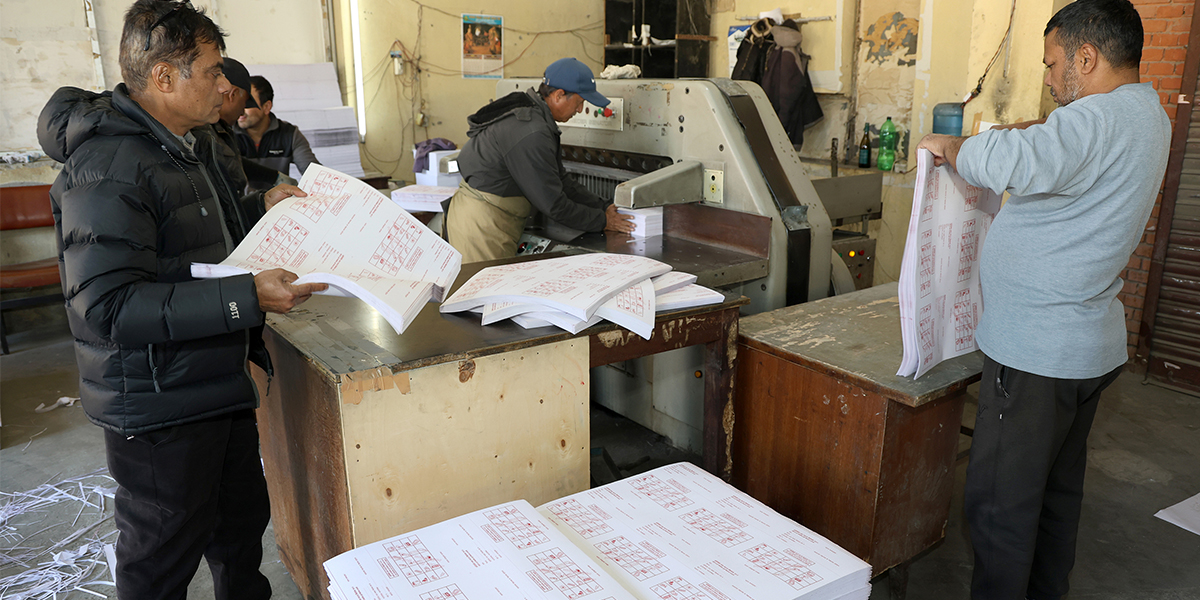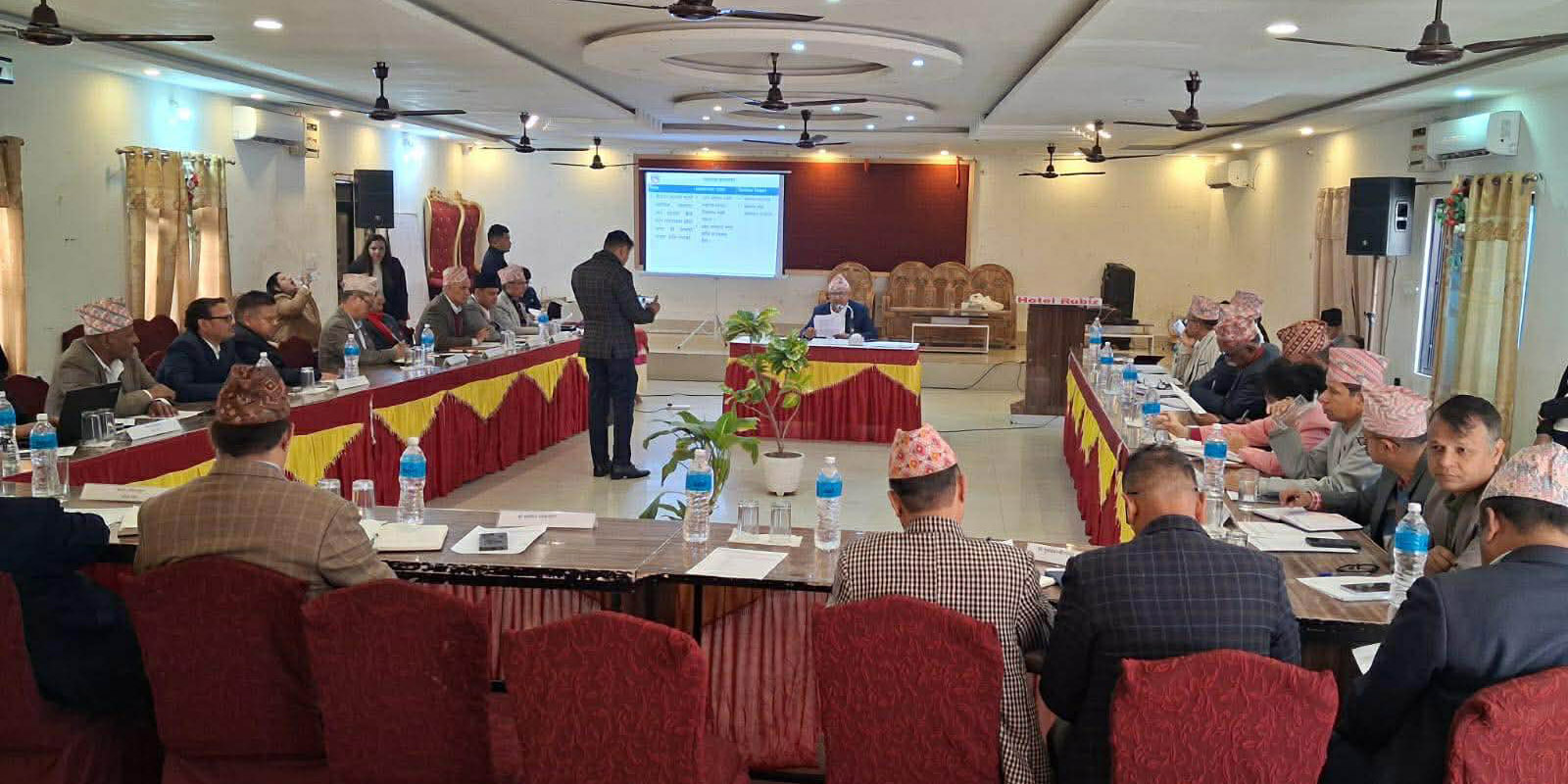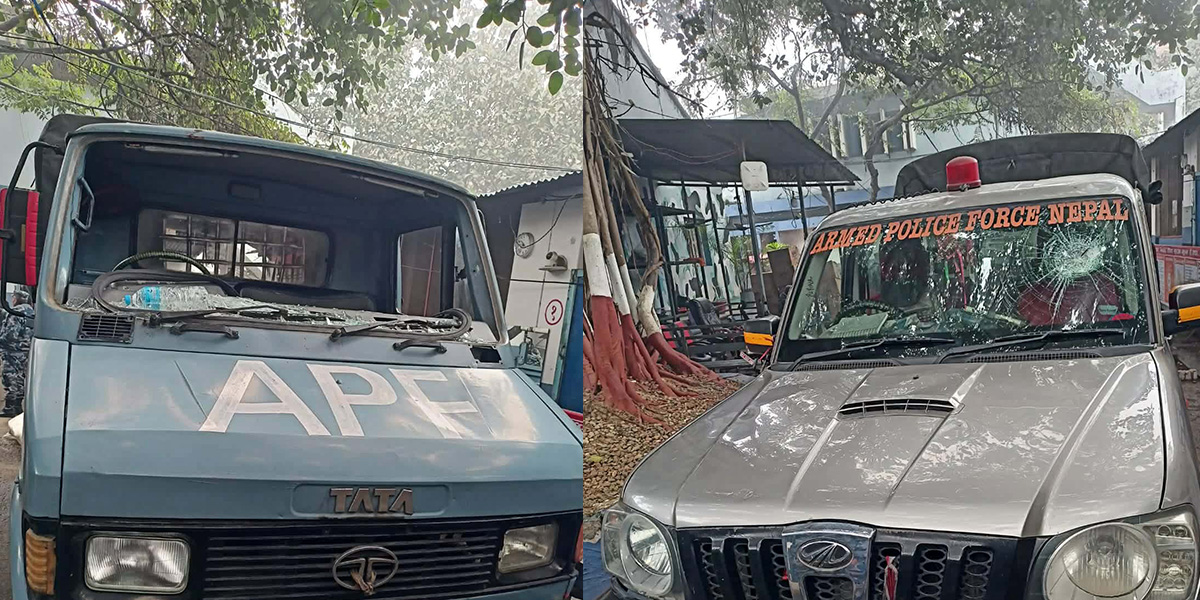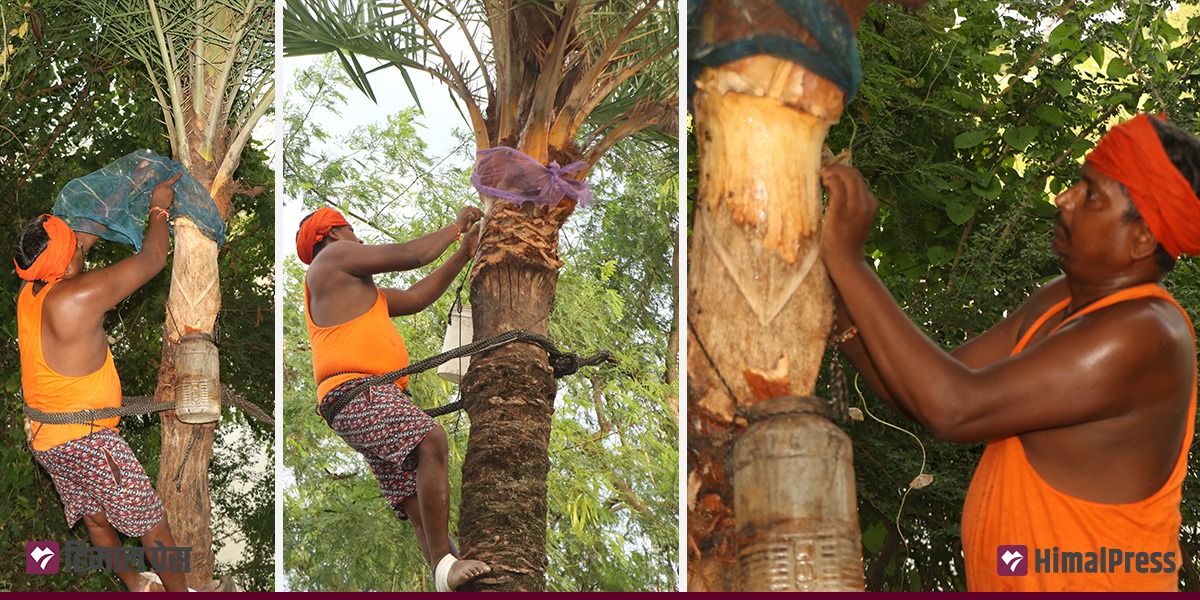 Subhash Chandra Paswan collecting sap from palm trees. Photo: Binod Pariyar
Subhash Chandra Paswan collecting sap from palm trees. Photo: Binod Pariyar
LUMBINI: In Bethari village, just a stone’s throw away from the Gautam Buddha International Airport, stands the house of Subhash Chandra Paswan. For three generations, this family has served palm juice, locally known as tadi, to locals and travelers alike.
It was Subhash Chandra’s grandfather, Musef, who introduced the taste of tadi to the people in the western Terai region of Nepal. What began as a means of sustenance for Musef’s family has now become a tradition carried on by his son Ram Sumujh Paswan and now by his grandson Subhash Chandra.
“We have been offering the taste of tadi for three generations,” Subhash Chandra said. “Along with farming, this has become our main profession.”
Tadi is a natural juice extracted from palm trees. In the Terai region, it is a highly popular beverage known for its slightly intoxicating effects which has earned it the name ‘natural wine’. Tadi is a sap collected from date palm and palmyra palm trees.
For the Paswan family, the busiest months are the hot summer days of Baisakh, Jestha, and Ashar (mid-April to mid-July). During this time, tadi is in high demand given its cooling properties. Travelers heading west from Bhairahawa to Lumbini and those going east through Lumbini often stop in Bethani for a taste and to cool themselves.
“People come to our place to enjoy tadi drink from 7 am to 6 pm,” Subhash said. “During peak season, we sell up to 30 bottles daily.”
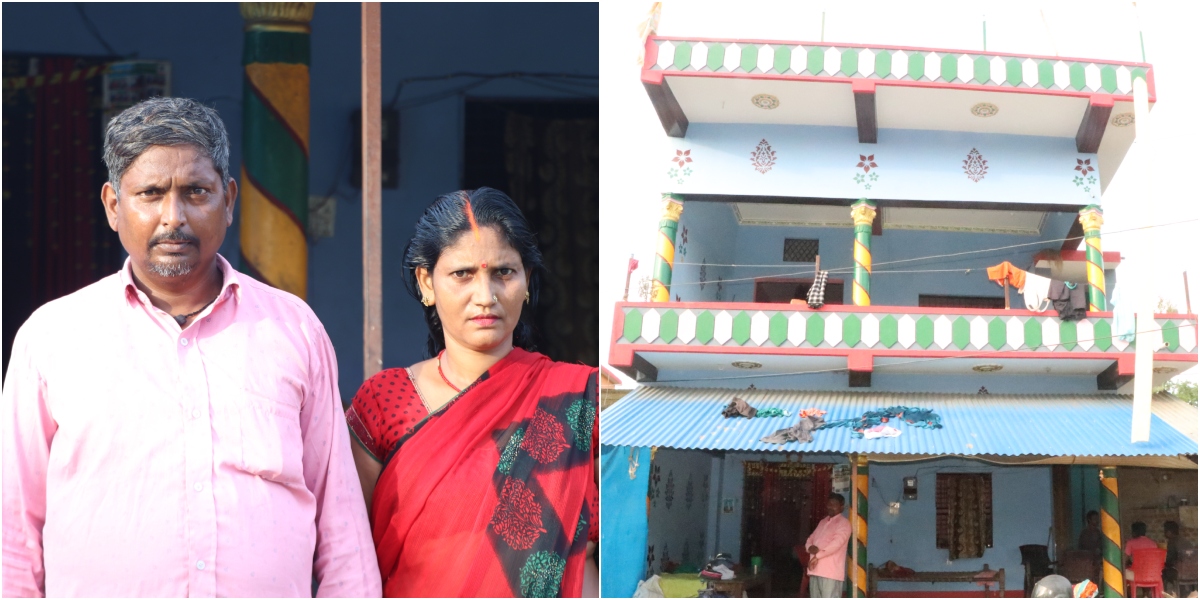
While Subhash collects the sap from the trees, his 42-year-old wife Laxmi manages sales at their home. Their two-story house, built from tadi sales and farming profits, serves as their residence and shop. They have placed four cots to provide seating for customers.
According to Subhash, customers come from as far as western Nawalparasi, Bhairahawa, Butwal, Manigram, Kapilvastu, Sainamaina, and even Palpa. “On Saturdays during peak season, there is hardly any space to sit in the house,” Laxmi shared.
Collecting tadi is a risky business that requires skill and courage. As the sun sets, Subhash climbs the tall, slender date palm trees with ropes tied around his feet and back. He makes a fresh cut into the stump that holds fruit and places clay pots to let the sap collect overnight. He collects the sap from the containers the next morning. “I learned this from watching my father,” Subhash said. “I am not sure if my son will be able to climb trees and collect tadi like this.”
To meet the high demand during peak season, Subhash rents additional palm trees. He owns 30 date palms and three palmyra palms but rents up to 45 more trees during the summer months. He pays a rental fee of Rs 500 to Rs 3,000 per tree. He sells tadi collected from palmyra palms at Rs 60 per bottle and date palm tree at Rs 80 per bottle. Some believe tadi has health benefits, potentially helping with jaundice and gastric issues. However, doctors advise against consuming it as an intoxicant.
As Bethari village continues to welcome visitors traveling to and from the birthplace of Buddha, the Paswan family’s tadi tradition remains an integral part of the local tradition and economy.


